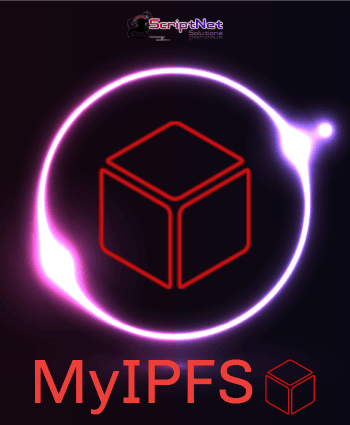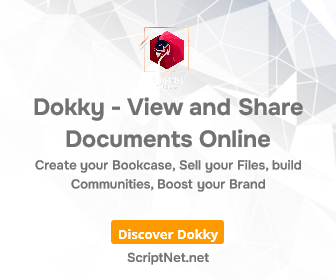Blockchains still aren’t great at communication
One of the prerequisites for the mass adoption of blockchain technology is interoperability — the ability to pass data between distinct blockchain and blockchain-like systems. Numerous interoperability projects have established themselves today, and many are growing at an incredible rate. Indeed, it’s only a matter of time before the number of cross-chain messages is measured in trillions.
Blockchain interoperability has never been more ubiquitous. In January 2024, more than $23 billion worth of assets were locked in cross-chain bridges on Ethereum alone. Clearly, our industry’s early adopters — affectionately called Web3 enthusiasts — are keen to explore new ecosystems as they routinely bridge assets from one blockchain to another. This process, though clunky, has become so commonplace that many believe that blockchain interoperability is a solved issue.
The truth is far more bleak.
The state of blockchain interoperability today is one of fractured incompatibility. Competing interoperability projects build ad hoc solutions that gerrymander the blockchain landscape, making it impractical for enterprises and regulators to vet the security of each. As it stands, the current state of blockchain interoperability poses an existential threat to the mainstream adoption of blockchain technology as a whole.
Modern interoperability projects are far too focused on building and growing their own proprietary products. The fight to become the one-and-only has introduced growing system complexity and, therefore, unbounded risk. As different projects make different tradeoffs to solve different problems, blockchain interoperability protocols continue to increase in complexity. Not only does this complexity make protocols progressively more incompatible with one another, each new system component or trust assumption introduces new attack vectors. As an industry, we must curb this troubling trend.
A shared framework for interoperability is desperately needed.
As a trustless system, decentralized blockchains are incapable of communicating with other blockchain networks out-of-the-box. Trust assumptions dictate the risk profile of a particular cross-chain design by shaping its vulnerabilities and delineating how a system can be exploited. Generally speaking, the greater the complexity of a system, the higher its susceptibility to attack. It is therefore preferable to simplify the design of cross-chain solutions in order to limit the number of exploitable components. So, while it is true that trust assumptions are inherent to blockchain interoperability solutions, there is security in simplicity.
Read more from our opinion section: There’s no reason to fear open platforms
A shared framework for interoperability between blockchain and blockchain-like systems — one that includes architectural guidelines and vetted interface definitions — makes it possible to reduce system complexity. This has the knock-on effect of preventing fragmentation across different project implementations. Even something as simple as common interfaces and functions to decode and verify the validity of messages would go a long way towards enhancing interoperability, while reducing the need for custom implementations.
A shared framework for interoperability also has the potential to foster collaboration between different interoperability projects. Broadly speaking, interoperability projects simply don’t trust each others’ work. This isn’t entirely surprising considering that, between 2021 and 2023, more than $2.9 billion was stolen from exploited cross-chain bridges. Nevertheless, this distrust has directly contributed to the fractured state of blockchain interoperability today. A shared framework, built openly and vetted by all, will result in a more secure system.
Blockchain interoperability must be core infrastructure first, product second. If we as an industry are to have any hope of achieving the mainstream adoption of blockchain technology (without sacrificing the industry’s core ethos of decentralization), we must establish a shared framework for interoperability. Time is running out.
Don’t miss the next big story – join our free daily newsletter .
Blockchain interoperability has never been more ubiquitous. In January 2024, more than $23 billion worth of assets were locked in cross-chain bridges on Ethereum alone. Clearly, our industry’s early adopters — affectionately called Web3 enthusiasts — are keen to explore new ecosystems as they routinely bridge assets from one blockchain to another. This process, though clunky, has become so commonplace that many believe that blockchain interoperability is a solved issue.
The truth is far more bleak.
The state of blockchain interoperability today is one of fractured incompatibility. Competing interoperability projects build ad hoc solutions that gerrymander the blockchain landscape, making it impractical for enterprises and regulators to vet the security of each. As it stands, the current state of blockchain interoperability poses an existential threat to the mainstream adoption of blockchain technology as a whole.
Modern interoperability projects are far too focused on building and growing their own proprietary products. The fight to become the one-and-only has introduced growing system complexity and, therefore, unbounded risk. As different projects make different tradeoffs to solve different problems, blockchain interoperability protocols continue to increase in complexity. Not only does this complexity make protocols progressively more incompatible with one another, each new system component or trust assumption introduces new attack vectors. As an industry, we must curb this troubling trend.
A shared framework for interoperability is desperately needed.
As a trustless system, decentralized blockchains are incapable of communicating with other blockchain networks out-of-the-box. Trust assumptions dictate the risk profile of a particular cross-chain design by shaping its vulnerabilities and delineating how a system can be exploited. Generally speaking, the greater the complexity of a system, the higher its susceptibility to attack. It is therefore preferable to simplify the design of cross-chain solutions in order to limit the number of exploitable components. So, while it is true that trust assumptions are inherent to blockchain interoperability solutions, there is security in simplicity.
Read more from our opinion section: There’s no reason to fear open platforms
A shared framework for interoperability between blockchain and blockchain-like systems — one that includes architectural guidelines and vetted interface definitions — makes it possible to reduce system complexity. This has the knock-on effect of preventing fragmentation across different project implementations. Even something as simple as common interfaces and functions to decode and verify the validity of messages would go a long way towards enhancing interoperability, while reducing the need for custom implementations.
A shared framework for interoperability also has the potential to foster collaboration between different interoperability projects. Broadly speaking, interoperability projects simply don’t trust each others’ work. This isn’t entirely surprising considering that, between 2021 and 2023, more than $2.9 billion was stolen from exploited cross-chain bridges. Nevertheless, this distrust has directly contributed to the fractured state of blockchain interoperability today. A shared framework, built openly and vetted by all, will result in a more secure system.
Blockchain interoperability must be core infrastructure first, product second. If we as an industry are to have any hope of achieving the mainstream adoption of blockchain technology (without sacrificing the industry’s core ethos of decentralization), we must establish a shared framework for interoperability. Time is running out.
Don’t miss the next big story – join our free daily newsletter .
 License.
License.





















